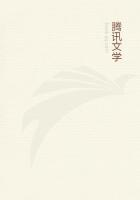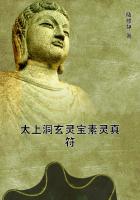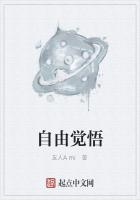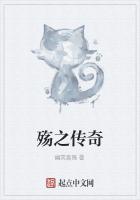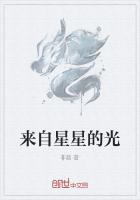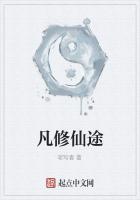"Alas!" cried Mary, falling on a seat and leaning both arms an the vessel's stern, "what a sad omen for such a sad voyage!" Then, once more fixing on the receding harbour her eyes, dried for a moment by terror, and beginning to moisten anew, "Adieu, France!" she murmured, "adieu, France!" and for five hours she remained thus, weeping and murmuring, "Adieu, France! adieu, France!"
Darkness fell while she was still lamenting; and then, as the view was blotted out and she was summoned to supper, "It is indeed now, dear France," said she, rising, "that I really lose you, since jealous night heaps mourning upon mourning, casting a black veil before my sight. Adieu then, one last time, dear France; for never shall I see you more."
With these words, she went below, saying that she was the very opposite of Dido, who, after the departure of AEneas, had done nothing but look at the waves, while she, Mary, could not take her eyes off the land. Then everyone gathered round her to try to divert and console her. But she, growing sadder, and not being able to respond, so overcome was she with tears, could hardly eat; and, having had a bed got ready on the stern deck, she sent for the steersman, and ordered him if he still saw land at daybreak, to come and wake her immediately. On this point Mary was favoured; for the wind having dropped, when daybreak came the vessel was still within sight of France.
It was a great joy when, awakened by the steersman, who had not forgotten the order he had received, Mary raised herself on her couch, and through the window that she had had opened, saw once more the beloved shore. But at five o'clock in the morning, the wind having freshened, the vessel rapidly drew farther away, so that soon the land completely disappeared. Then Mary fell back upon her bed, pale as death, murmuring yet once again--"Adieu, France! I shall see thee no more."
Indeed, the happiest years of her life had just passed away in this France that she so much regretted. Born amid the first religious troubles, near the bedside of her dying father, the cradle mourning was to stretch for her to the grave, and her stay in France had been a ray of sunshine in her night. Slandered from her birth, the report was so generally spread abroad that she was malformed, and that she could not live to grow up, that one day her mother, Mary of Guise, tired of these false rumours, undressed her and showed her naked to the English ambassador, who had come, on the part of Henry VIII, to ask her in marriage for the Prince of Wales, himself only five years old. Crowned at nine months by Cardinal Beaton, archbishop of St.
Andrews, she was immediately hidden by her mother, who was afraid of treacherous dealing in the King of England, in Stirling Castle. Two years later, not finding even this fortress safe enough, she removed her to an island in the middle of the Lake of Menteith, where a priory, the only building in the place, provided an asylum for the royal child and for four young girls born in the same year as herself, having like her the sweet name which is an anagram of the word "aimer," and who, quitting her neither in her good nor in her evil fortune, were called the "Queen's Marys". They were Mary Livingston, Mary Fleming, Mary Seyton, and Mary Beaton. Mary stayed in this priory till Parliament, having approved her marriage with the French dauphin, son of Henry II, she was taken to Dumbarton Castle, to await the moment of departure. There she was entrusted to M. de Breze, sent by Henry II to-fetch her. Having set out in the French galleys anchored at the mouth of the Clyde, Mary, after having been hotly pursued by the English fleet, entered Brest harbour, 15th August, 1548, one year after the death of Francis! Besides the queen's four Marys, the vessels also brought to France three of her natural brothers, among whom was the Prior of St. Andrews, James Stuart, who was later to abjure the Catholic faith, and with the title of Regent, and under the name of the Earl of Murray, to become so fatal to poor Mary. From Brest, Mary went to St. Germain-en-
Laye, where Henry II, who had just ascended the throne, overwhelmed her with caresses, and then sent her to a convent where the heiresses of the noblest French houses were brought up. There Mary's happy qualities developed. Born with a woman's heart and a man's head, Mary not only acquired all the accomplishments which constituted the education of a future queen, but also that real knowledge which is the object of the truly learned.
Thus, at fourteen, in the Louvre, before Henry II, Catherine de Medici, and the whole court, she delivered a discourse in Latin of her own composition, in which she maintained that it becomes women to cultivate letters, and that it is unjust and tyrannical to deprive flowery of their perfumes, by banishing young girls from all but domestic cares. One can imagine in what manner a future queen, sustaining such a thesis, was likely to be welcomed in the most lettered and pedantic court in Europe. Between the literature of Rabelais and Marot verging on their decline, and that of Ronsard and Montaigne reaching their zenith, Mary became a queen of poetry, only too happy never to have to wear another crown than that which Ronsard, Dubellay, Maison-Fleur, arid Brantome placed daily on her head. But she was predestined. In the midst of those fetes which a waning chivalry was trying to revive came the fatal joust of Tournelles: Henry II, struck by a splinter of a lance for want of a visor, slept before his time with his ancestors, and Mary Stuart ascended the throne of France, where, from mourning for Henry, she passed to that for her mother, and from mourning for her mother to that for her husband. Mary felt this last loss both as woman and as poet; her heart burst forth into bitter tears and plaintive harmonies. Here are some lines that she composed at this time:--
"Into my song of woe, Sung to a low sad air, My cruel grief I throw, For loss beyond compare;
In bitter sighs and tears Go by my fairest years.



